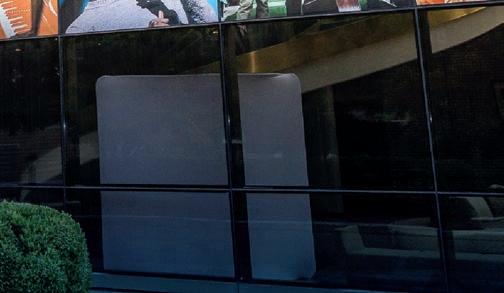
4 minute read
SHOP TALK
EMPLOYEE RELATIONS RONNIE BLAIR
Team Players
Advertisement
The human needs that drive business success.
Employee performance, good or bad, usually can be traced to leadership—whether company leaders want to admit it or not, says Jeanet Wade, founder of the consulting firm Business Alchemist.
“When teams break down and employees disengage, leaders and managers typically don’t question their own strategies,” she says. “Instead they blame the people assigned to carry out those strategies. If they are feeling charitable, leaders and managers say those people were bad fits. If they aren’t feeling charitable, they call them whiners, complainers, or failures.
“But in about 80 percent of cases, I believe it’s not that the people are the wrong people for the job but rather that leaders aren’t prepared to handle what I call ‘human moments’ because they fail to understand and address these natural human needs.”
Wade says there are facets of human needs that leaders must take into account in order to expect teams to perform at the highest level possible.
Clarity In too many workplaces, Wade says, people are unsure what’s expected of them or how their jobs fit into a larger plan.
“People on teams sorely need clarity or they’ll lapse into confusion,” she says. “Specifically team members must understand the purpose of the team itself, their role within it, the team’s outcome goals, and how their team fits within the larger organization.”
Challenge Leaders and managers often are hesitant to challenge others, Wade says, not wanting to push people or make them uncomfortable. “But when we withhold opportunities that challenge people, we ultimately deny others an important human need,”
Sign Builder Illustrated Magazine (Print ISSN 895-0555, Digital ISSN 2161-4709) (USPS#0015-805) (Canada Post Cust. #7204564; Agreement #40612608; IMEX Po Box 25542, London, ON N6C 6B2, Canada) is published monthly by Simmons-Boardman Publishing Corporation, 88 Pine St. 23rd Floor, New York, NY 10005. Printed in the U.S.A. Periodicals postage paid at New York, NY and Additional mailing offices. Prices are subject to change.
COPYRIGHT © Simmons-Boardman Publishing Corporation 2021. All rights reserved. Contents may not be reproduced without permission. For reprint information, contact: Gary Lynch, Publisher (212) 620-7247 or glynch@sbpub. com. POSTMASTER: Send address changes to Sign Builder Illustrated, PO Box 1407, Cedar Rapids, IA. 52406-1407.
Instructional information provided in this magazine should only be performed by skilled crafts people with the proper equipment. The publisher and authors of information provided herein advise all readers to exercise care when engaging in any of the how-to-activities published in the magazine. Further, the publisher and authors assume no liability for damages or injuries resulting from projects contained herein.
she says. “The trick is to make sure challenges are productive. They should be difficult, but not so overwhelming that people withdraw if they fall short.”
Consideration Everyone feels the need to be recognized and valued, Wade says.
Unfortunately, leaders and managers often spend so much time on toxic or poor-performing people that they neglect everyone else. “You can’t obtain and retain top talent if you don’t show them respect and consideration at every stage of the journey,” says Wade. “They must be recognized for good work, thought about for promotions, and reminded of how critical they are to the organization.”
Confidence Confidence is fragile and can be easily shaken, Wade says, which is why it’s critical for leaders to instill confidence in their teams. People fearful about failing become hesitant, avoid difficult challenges, and are less productive.
“But if you have confidence, even the hard stuff doesn’t seem so daunting,” says Wade. “When leaders, managers, or facilitators help build confidence in their teams, they can inspire others to achieve audacious, improbable goals.”
Jeanet Wade is the ForbesBooks author of The Human Team: So, You Created a Team But People Showed Up! (www. thehumanteambook.com), is a Certified EOS® Implementer, and is the founder of the consulting firm Business Alchemist. As a facilitator, teacher, and coach, Wade helps companies implement the Entrepreneurial Operating System (EOS), a set of business concepts, principles, and tools that help business owners and executives run more successful businesses.
To read more of this article, please visit http://bit.ly/2OWUPE4.




















